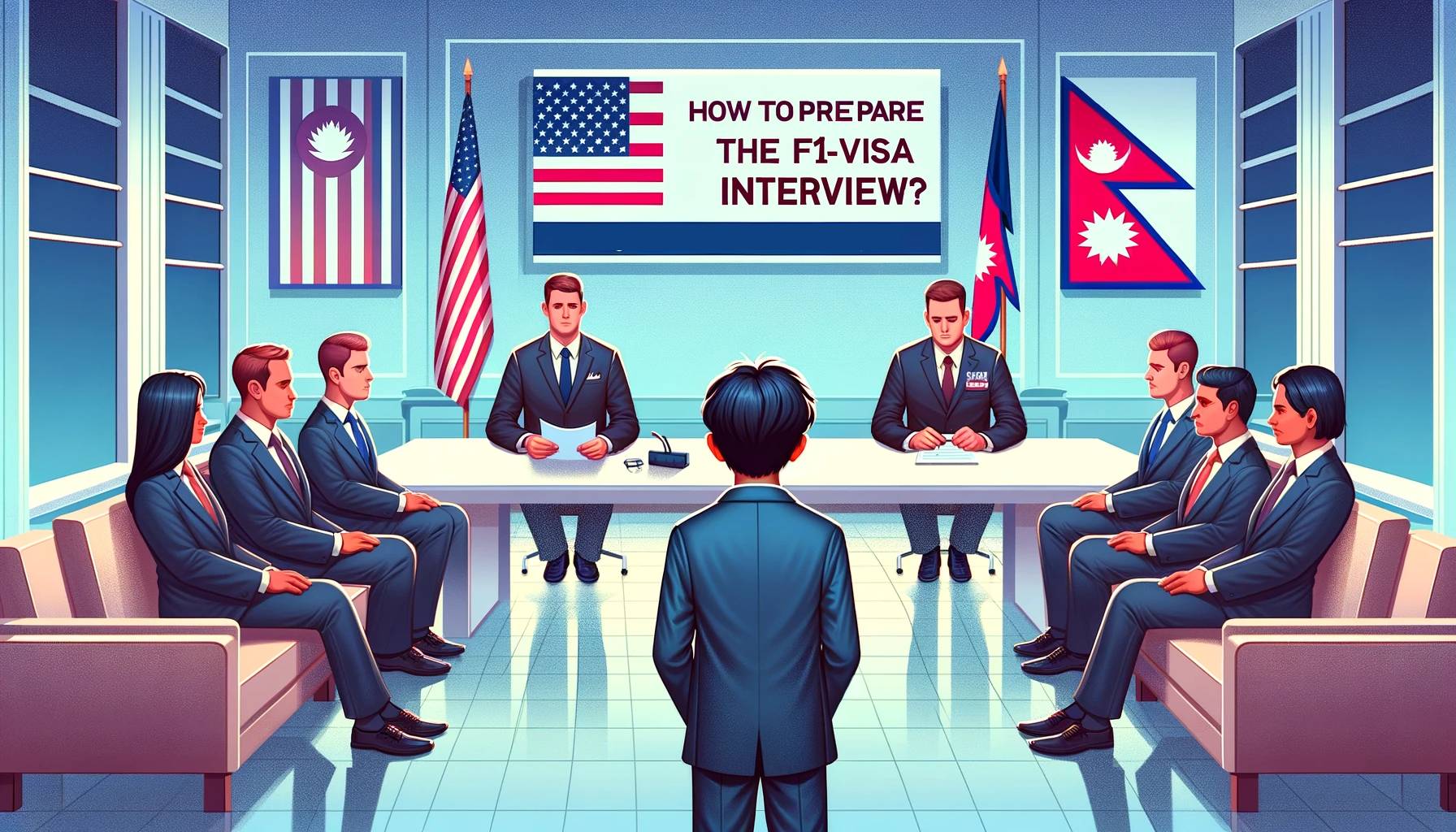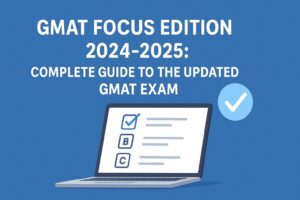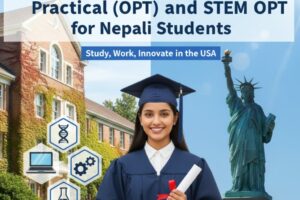How to Prepare for the US F1-Visa Interview?

Getting into American universities fulfills big dreams. However, acing tense visa interviews poses another daunting hurdle for international applicants.
An unsuccessful interview jeopardizes hard-won admissions when you present unconvincing responses which raises eligibility doubts. Meticulous preparation is essential to project yourself as a credible student during the intensely scrutinized exchanges with the consular officer.
Securing the USA Study Visa: An Overview
Higher education aspirants seeking American visas undergo rigorous application procedures assessing merit and admission odds before being summoned for in-person embassy interviews.
These visa sessions represent the final admissibility evaluation. Rehearsing to project oneself as an authentic and financially prepared student is crucial. You will also need to back the claims with documentation which allows or improves your chances for more smoothly gaining approvals.
Interview Focus Areas

While interviews may explore diverse aspects randomly, three issues draw intense inspection:
- Genuine Student Credentials
- Sufficient Funding Capacity
- Strong Home Country Affiliations
Demonstrate credibility across these interlinked areas requires thorough preparations, as explained below
Proving Genuine Student Credentials

It is crucial to establish your legitimate student profile and educational priorities which prevents suspicion of ulterior immigration intent. Some likely questions and suggested response approaches include:
✎ Why do you wish to study in the USA particularly?
Showcase your interests in specialized academic programs, familiarity with faculty members and their research interests or available resources to support your education, and alumni networks. This will help to distinguish your prospective university as a uniquely matched institution which can help you to accomplish your aspirational goals which would be unattainable elsewhere.
✎ How did you research about the programs and shortlist universities?
Emphasize the research you did to learn about program syllabi, learning environments they offer, university rankings, and alumni testimonies via online resources and educational fairs prior to applying.
✎ Which other countries did you consider for studies and why did you finalize the USA?
Outline strengths of American universities in your specific subject area and how focused curriculum will help to gain personal growth as well as accomplish your vision and career goals.
✎ What are your specific ambitions after finishing the degree?
Elaborate your goals and the path you have planned which may include job, entrepreneurship etc. where you plan to leverage the gained technical expertise.
✎ Have you attended educational fairs, embassy outreach events, or counseling sessions for application guidance?
When you mention how you have attended preparative education events, it adds credibility and indicates deliberate study goals. Proactively seeking advice also portrays maturity and your aptitude to succeed in the US as a student.
✎ What alternatives or backup plans do you have if the current application faced rejection?
Discussing alternative paths, including potential reapplication next intake, considering allied programs, or exploring appropriate options back home, make you appear less suspicious of transactional students who are only desperate for entry into the US.
Financial Capacity Concerns
Visa officers assess if applicants can fund entire degree durations without seeking illegal employment. Hence, confirming adequate financial capacities reduces concerns and improves your chances to secure a visa. Some of the frequent money related questions include:
✎ What are the total tuition and living expense estimates for the full program duration? How will these be funded?
Provide a breakup covering program duration, tuition averages for international enrollments across semesters/years, standard costs of student accommodations, books, healthcare insurances, food, transport and other personal expenses.
You can also highlight sufficient available funding sources for the total cost comprising family income sources, institutional scholarships that has been already confirmed, etc.
Support this narrative by mentioning:
- Financial documents proving capacity like bank statements, FD certificates etc. that were already submitted in the application.
- Willingness for additional income/assets proof if required.
✎ The financial coverage you described seems guaranteed only for the first year. How are you planning for subsequent years?
Reaffirm that the available total funding can sustain for the entire multi-year period without uncertainties.
This may include income sources from employment, business, or other sources of income as well as discharge bonds, educational policies maturing yearly, or fixed deposit transfers scheduled to replenish accounts. You can also outline how expenses may decrease over the years due to completed university fees, textbook purchases etc.
✎ With education costs being so high, what backup funding options does your family have if anything unforeseen, like medical issues or accidents, occurs? How can you handle financial emergencies or contingencies?
Quote consolidated reserves across family properties, assets, and alternative earnings that allow pooling emergency funds even through distress. Convey reassurance that education overseas will continue despite unpredicted spending spikes. Having thorough contingency planning provides confidence.
Home Ties and Return Commitments

Visa officers evaluate if candidates have reliably strong connections and affiliations back home that will motivate the students to return after education is completed instead of illegally overstaying in the country. Some key questions posed include:
✎ Why have you chosen your particular university located in a small town when larger metro cities offer similar programs? Urban campuses also have more cosmopolitan appeal and networking advantages?
Justify selections in light of academic superiority factors like experienced faculty members in your subjects available only at those colleges, distinct curriculum, better career preparatory training opportunities, etc., rather than lifestyle choices alone. This portrays prudence. Also, discuss plans to travel to nearby famous cities periodically.
✎ What family members reside in your home country? Are parents willing to let you study independently abroad at such a young age?
Describe the close-knit families that will be waiting for you when you get back. Talk about your spouse, parents, grandparents, or children who might come visit you from time to time during breaks. Express that your family understands your career investment and that relationships remain strong despite physical distance barriers, despite concerns about allowing overseas education at such a young age.
✎ Do you have other relatives, friends, or contacts living in the country where you wish to study?
If yes, truthfully acknowledge that you have acquaintances but clarify frequent interactions are unlikely due to your intense academic commitments during your program. Local ties that raise concerns about immigration tendencies negatively should be avoided.
✎ What do you plan to do during long semester breaks and summer vacations? Would you return home each time?
Confirm your intention to fly back during prolonged holidays whenever possible budget-wise. If funds constrain your yearly visits, discuss about keeping engaged within local communities through part-time jobs, research assistantships, or immersive language study programs that are always within student visa regulations.
✎ How often do you plan keeping in touch with family while abroad? Can communication challenges ever make you reconsider returning?
Describe efforts to keep in touch with parents via video calls to share updates and seek comforting advice through the challenging period to reassure the family of their well-being. Convey how technology platforms will enable regular remote interactions and prevent risk of estranging relations with loved ones which will reinforce to them about your intention to return home.
Conclusion
Preparing convincing, consistent narratives and documentation that support your claimed student profile and focused goals requires diligence. It will allow sailing through the tense visa interviews more smoothly.
You should avoid over-researching wider general subjects, current affairs, or specialized academic topics beyond projected scope of study. Streamline your efforts towards strengthening credibility for your stated goals as the key priority instead.
Consular Officers seek signs of temporary stay intents focused on securing overseas education for accelerating career progression back home rather than have doubts of your illegal immigration. With meticulous planning, students can confidently project authentic and intended non-immigrant image that would significantly improve your chances to secure visa approval.


